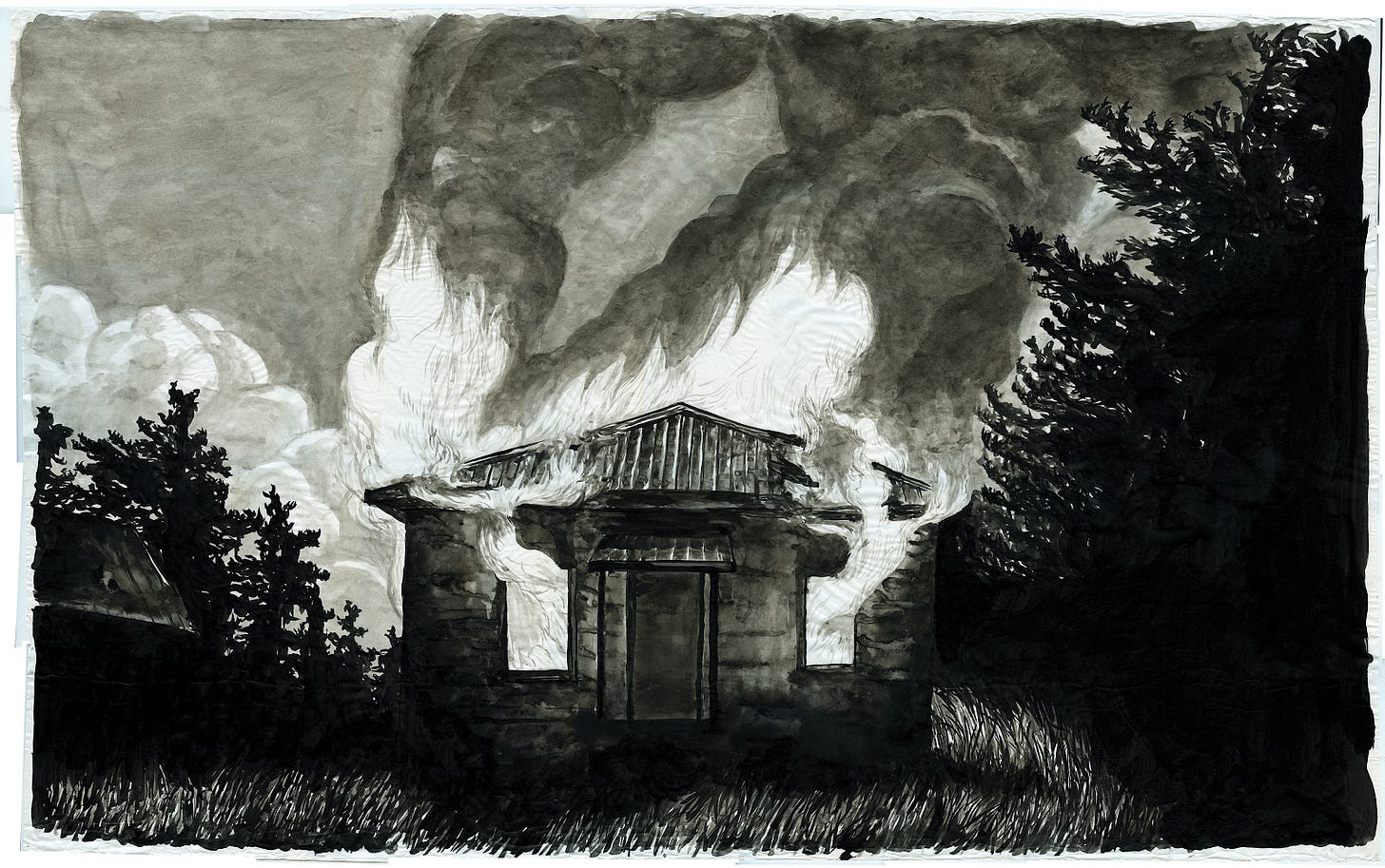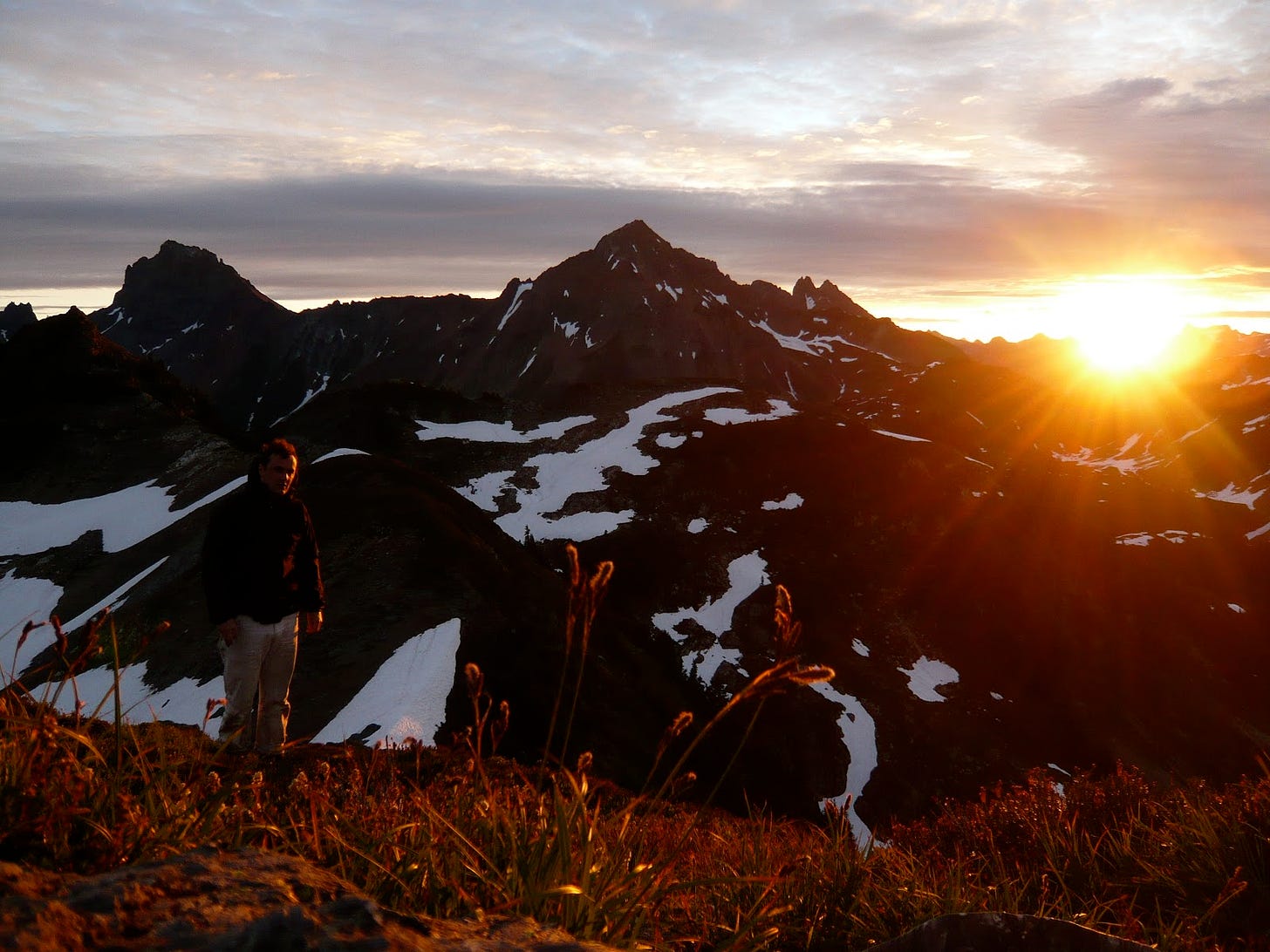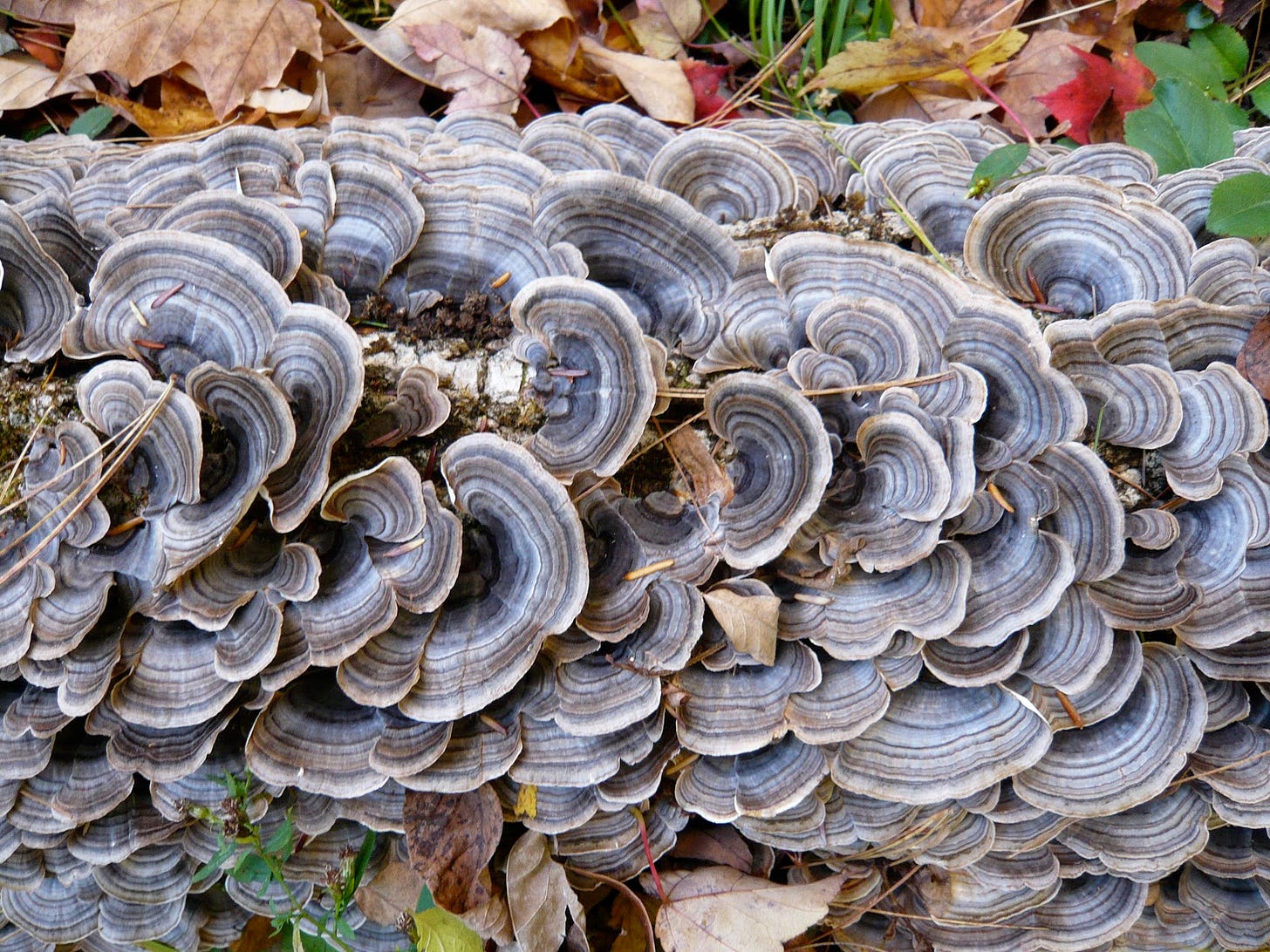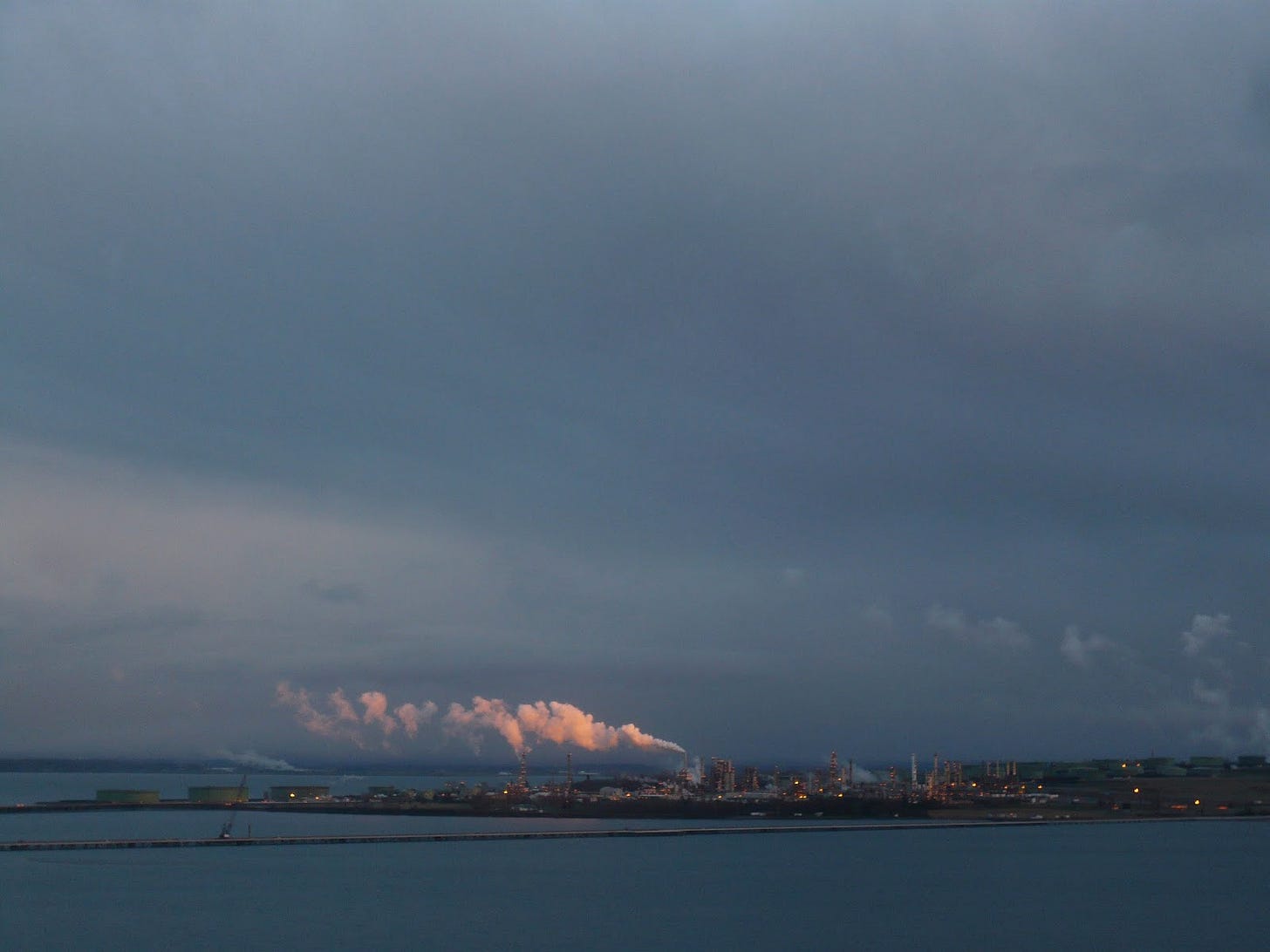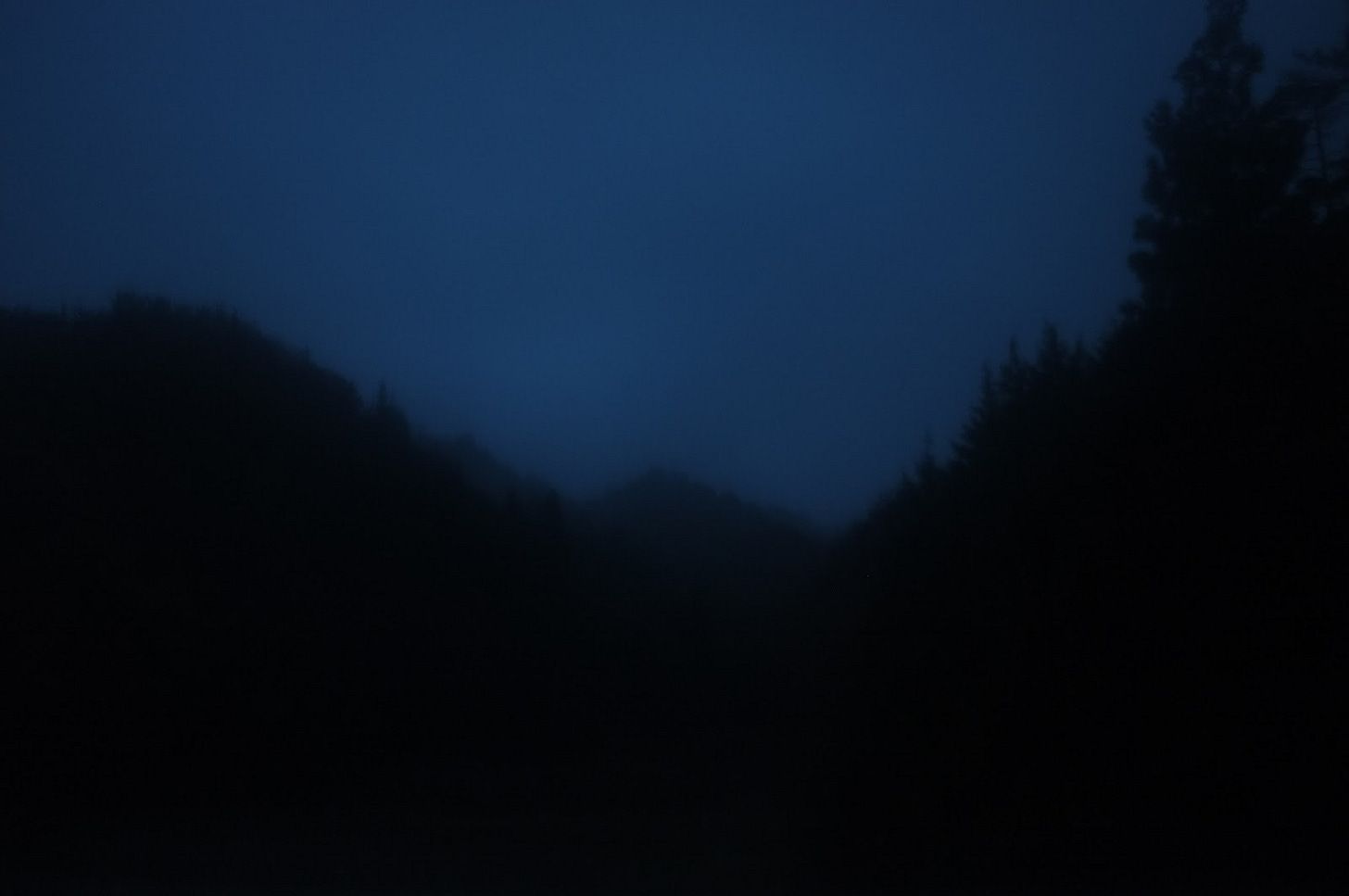Tune Glue 006: Phil Elverum (The Microphones, Mount Eerie)
An interview with musician Phil Elverum
Welcome to Tune Glue, a newsletter that’s run in conjunction with Tone Glow. While the latter is dedicated to presenting interviews and reviews related to experimental music, Tune Glue is a space for interviews with artists of any kind. These interviews could be with video game designers, perfumers, or musicians who aren’t aligned with what Tone Glow typically covers. Thanks for reading.
Phil Elverum
Phil Elverum is an artist and human being from the Pacific Northwest town of Anacortes. His recordings, released variously as The Microphones and Mount Eerie, represent just a portion of his artistic output, which has ranged from running a label and co-organizing festivals to self-publishing books, photography, and painting. But it is for his stunningly original music that he is known best, from the earliest tape experiments of the ’90s to the immersive sound-diary of this year’s The Microphones in 2020. Elverum has never shied from exploring the high mountain passes, finding new ways to sculpt with sound, and trying to communicate the momentary experience of being human as clearly as the water from freshly melted snow. Emily Wirthlin spoke with Elverum over the phone on October 19, 2020 to talk about caves, mushroom hunting, and being receptive to the potency of darkness.
Emily Wirthlin: Hey there Phil! How are you?
Phil Elverum: Hi! Good.
This is Emily calling about the Tune Glue interview.
Yes. I’m ready. I’m expecting it.
Great. Do you mind if I record our conversation?
Yeah, of course not.
I have some questions but if we just get to chatting that’s fine too. You mentioned in an interview recently that you’re moving to a new house that you’re building yourself on an island. How’s that process going?
It’s going, slowly. I’m not living in it now. I’m also not building it myself. I’m working on some parts of it, but I don’t know how to… build a house (laughter). And I’m also a single parent, so I just can’t. I wanted to at first—I thought that would be fun—but I didn’t want it to take forever. I’m working with a contractor. It’s slow, like everything in the pandemic, but it’s amazing. It’s been this thing I’ve been working toward for many years.
That sounds amazing. Is there anything that precipitated that desire to move somewhere a little more remote?
Yeah; it was when Geneviève [Castrée; author, illustrator, and musician; 1981-2016] got sick with cancer. We were just like, “What? What is life?” It made us sort of reassess everything. We decided this thing we thought was permanent, of us living where we lived, no longer felt permanent. Nothing felt permanent. We decided, “Where would be the best possible place to live?” and just made it happen. It became more my dream than hers, but yeah.
I think a lot of people are feeling that same desire to leave society, especially as we increasingly feel the effects of our destructive, exploitative relationship to the natural world.
Totally. I also think that, just aside from the question of ‘nature vs not-nature,’ the pandemic and also just with all the societal upheavals that are going on, economic and cultural, everything is so cathartic these days that it’s creating that perspective shift. For a lot of people, hopefully, it’s making them reassess deeply. Everyone is in crisis mode. That can be really productive, I think, as long as you’re not faced with actual death or homelessness or major trauma. I think that can be really good, to reset and reprioritize things.
Do you feel like it would be possible for society as a whole to go back to living in that kind of healthier relationship with nature?
No (laughter). No, no; we’re fucked.
I kind of agree, unfortunately.
Yeah, it’s just too late. But I don’t actually think that that is the solution, totally. Or maybe it would be, but me wanting to move a little bit further out from town wasn’t really because I wanted to get away from society; it was just the version of society that suited me best. I definitely still want to be a participant in my community and my civic life. I maybe had more hermit tendencies when I was younger, but they’ve evaporated mostly.
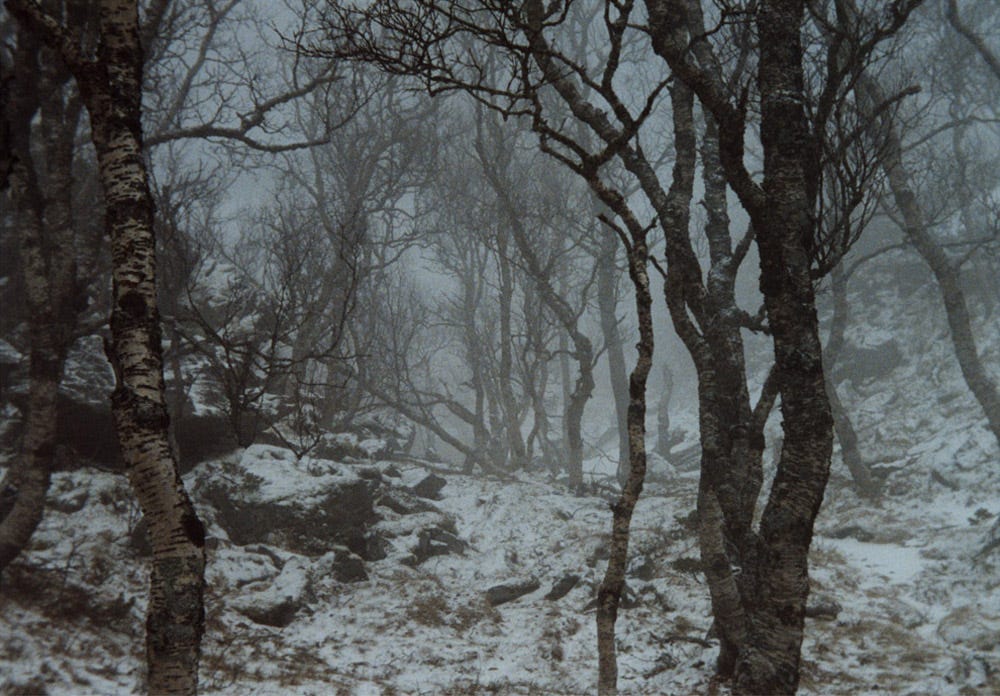
I was thinking about the parallel between this move and the time you left everything to spend a winter in a cabin in Norway.
Mmhmm, yeah, there’s a similarity there. That Norway experience was an example of maybe a younger, more radical, romanticized version of solitude. I’m more interested now in being part of my society, just a smaller society, which I think is a more realistic and sustainable solution if humanity’s going to survive. For us to all be in villages, basically.
Yeah, I absolutely agree. And of course [poet and essayist] Gary Snyder talks about this false divide between what is “nature” and what is “not-nature,” and how in some ways perceiving nature as this separate thing is what creates our harmful relationship with it.
Yes, totally.
Not to belabor the point, but at least for me, that was a really resonant part of your music from around that time. You wrote a lot about caves, which makes me think about the poet Cold Mountain [Han Shan, 9th century] who you reference in some of your songs. Does that idea of “shining your light into caves” still resonate with you, or is that part of the old hermit you that you’re trying to leave behind?
(laughs). Hmm, specifically the cave thing… there’s a lot of potent symbols there. I love Cold Mountain still, but also I embarrass myself sometimes with how typical it feels for me (laughter). Maybe it’s not typical; it’s not that popular. But in my small bubble of my interests it feels like ‘oh, of course.’ For example, when I moved here, to this island, I found this obscure book of poetry this woman in the late ’70s wrote [Buck Mountain Poems, Anne Kennedy], basically about how moving here and trying to live on this remote, colder, mountain part of the island. Even then, she was like “…just like Han Shan did.” And I felt like, “Ah dammit” (laughter). I’m part of a lineage of people with these romantic ideas. So I have my interests, and I reject them at the same time.
But you asked about caves. It makes me remember that I think back then, the songs on No Flashlight, I think I must have had some specific poetic exploration I was fixated on. It wasn’t actually talking about caves, it was talking about “the darkness that lives within the day.” Containing “the pregnant night.” This idea of “containing darkness,” not in a scary or negative way, but in a wholesome way. The potency of darkness, of emptiness.
I love that.
And then yeah, this “no flashlight,” this anti-flashlight stance I was coming up with (laughs) was about saying, “get comfortable with darkness; don’t illuminate it!”
Was that inspired by a specific moment? Do you remember the first time you experienced that specific feeling of “no flashlight”—at least as I understand it—that utter vulnerability in the world when you turn off your flashlight at night?
I don’t remember a specific moment; it was a period. Geneviève and I were living in this cabin; you couldn’t drive all the way to it. It was a short hike up a trail through the woods at night to get to the cabin. We had a shared art studio in town that we would spend the day in, and then come home to our sleeping cabin late at night, every night. We would bring the flashlight with us, but I just got into not using it on our night walks up the trail to the cabin, because walking the same trail every night, we became familiar with where the roots are to trip over. And I started to notice that more expansive awareness that grew out of not using the flashlight, rather than putting the blinders on and narrowing your focal point.
There’s a lot more you notice. Not only seeing the full richness of the stars as your eyes adjust to the darkness but even things like walking along the beach sometimes in utter darkness, you notice things like Noctiluca, the little dinoflagellate that shines blue. And sometimes it’s so brilliant you can see it even on a full moon, but sometimes it’s so faint that you really have to be out there in the darkness to see this beautiful blue light in the wet sand beneath your footsteps.
Totally. It’s very beautiful. And even just beyond the visual, I noticed all the senses being heightened. And I knew other people had had that realization before, but I just wanted to make an album in favor of listening, basically, of being more receptive. So there’s songs about, like, “stop singing” (laughter). Just, shut up. It’s sort of contradictory.
It reminds me of Adrian Orange [of Thanksgiving], who was also writing Cave Days and Moments around that time. There’s a really beautiful relationship between some of the songs and themes you were both singing about at the time, thinking especially about the parallels between Adrian’s song “Around The World” and your song “Grave Robbers.”
Yeah, those were some great times. There was a lot of openness and sharing and freedom in the folk music tradition where songs never have solid form. Everything’s up for reinterpretation.
They don’t belong to anyone in particular.
Yeah, that was nice. I had that sort of camaraderie with my friend Kyle [Field, who records as Little Wings] for many years, too. Still a little bit we do; we text back and forth ideas occasionally.
You and Kyle?
Kyle, yeah. Adrian, not so much. He’s gone through a lot of different things in his life, changes.
You wrote a really beautiful piece on his song, “Fire Dream,” for Pitchfork that I found really moving.
Thanks.
Are there any other musicians these days that you feel that kind of special kinship with?
Not so much, unfortunately. I just am sort of not living in a musical community. It’s okay; I’ve got enough ideas (laughs).
Besides musicians, are there other artists in other mediums that are particularly inspirational to you?
Hmm. Yeah; there must be. I don’t know. Lately I’ve just been super absorbed in working on this book of Geneviève’s art. That’s sort of eclipsed everything else; I’ve lost perspective outside of that. I’m so entrenched in sorting through her archives and making this book out of them. I wouldn’t say that they’re inspiring me because she was so singular as an artist. I don’t know what inspiration I could draw from her work because she was so her. Like, I’m not gonna use those ideas; I’m not gonna make an album about growing up in Montréal in the early ’80s (laughs). That’s not my thing. I’m really happy with how it’s turning out; it’s very gratifying.
I think a lot of people think of you as a ‘singer-songwriter’ but over the years you’ve been pretty multidisciplinary as an artist, from letterpressing and painting your own album covers to self-publishing photo books to custom packaging tape. Do you feel like in the future you might explore more avenues like that more fully, or that you might like to if you weren’t primarily seen as somebody who sings songs?
Yeah; it’s funny—I think that music is such a small part of my life, actually. I know that if people ask me what my job is that’s the correct answer, because that’s what I’m most known for. But it’s not how I spend my time. I think as long as I can manage it I hope to just keep doing all of these different weird, creative projects. I think it’s just that music is more commercialized and commodified. It’s easier to distribute and sell compared to an esoteric art book, or packing tape (laughter). The answer is that I feel lucky that I have the ability to even get the chance to try all these things and I hope to keep that going as long as possible. Even if the interest and financial support that comes from these various art projects dries up, I’ll probably keep doing it. And have to work a job, also.
Do you feel like you could see yourself publishing a novel or a full book of poetry one day?
Oh, totally. Any day now (laughter). I have so many book ideas that are halfway done or a little bit done. Lots of possibilities.
Could you talk about some of those ideas?
Well, really soon—in a couple of weeks, probably—I’ll announce… I guess it could be in this published piece that you’re writing, but I made a book version of The Microphones in 2020. It’s all the photos that are in the long music video. So that will exist. It’s not its own thing, it’s sort of a supplementary, but it’s very beautiful. There’s 760 pages because that’s how many pictures there are. It’s kind of huge, but I’m happy with how it turned out.
Will it be just the photos, the way Dust was, or will there be the lyrics also?
There are little subtitles down below, like in the music video.
That video was really well done.
Thank you. There’s a lot of scanning to get all those photos in. It’s unhealthy, all this computer work, but that’s the downside of being into making books. I’m hunched over at my console when I could be doing something with my body.
What would you rather be doing?
Anything (laughter). Well, I could be doing other stuff but I’m totally grabbed by these projects. When the spark hits and things click and I can see the tasks laying out in front of me, it’s really hard. I know I would be much better served to go on a walk or go take care of the vegetables in the garden or do all of the many things that need to be done, but instead I’m rushing back to the computer every time I have a spare moment and neglecting cooking food. It’s like, “we’ll have macaroni and cheese again,” so I’ll have more time to work on the computer project (laughter). It’s ridiculous.
I’ve been putting some papers together for publication and there’ve been a lot of macaroni nights.
(laughs).Yeah, that’s the tradeoff.
Have you been able to go camping recently or is that something that’s more difficult to manage with your daughter?
I like camping with her a lot. I thought we would do some more over the summer, but around here, at the beginning of the pandemic when nobody was allowed to go anywhere, lots of wilderness places were closed. And then once they opened up, the state parks and stuff, we got inundated by people from other places like Seattle, for example. Being outdoors and camping was one of the few things that was safe for people to do, so all the trails, all the campgrounds and everything just flooded. So actually the most crowded place to be was the wilderness; it was weird. This year we didn’t, but that’s fine.
I think with being cooped up, especially in a place like the Pacific Northwest where you’re surrounded by natural beauty, I can imagine people wanting to have that reprieve from feeling trapped at home like a rat in a box.
Yeah, totally; makes sense. It was interesting seeing the parks as crowded as anyone ever remembers seeing them. And it’s good; it’s a good, healthy thing for people to do. But for those of us who live here, it felt like we didn’t want to leave our house because it was riskier to go out.
Do you feel like you’ve noticed a lot of changes in the actual wilderness or in the wildlife over the years? You read all these things about how bird populations are collapsing, insect populations are collapsing. Do you feel that in a visceral way, having grown up closer to the edges of the natural world?
There are some things that I notice, but I think for the most part, where I live, we’re sort of on the edges of the impact compared to places like California. But yeah, we definitely experienced a couple of weeks of really intense forest fire smoke that had blown in from California and Oregon and school had to be closed. There was a big die off of the cedar trees that’s still going on. They’re not very drought tolerant and the past couple summers have been really dry. It’s kind of a big one because the red cedar is such an emblematic species in this part of the world. So it feels extra symbolic.
That’s heavy.
Yeah, there’s a lot of heavy things happening all at the same time.
Are there any plans for dinner tonight, besides macaroni?
(laughter). Yeah, we actually haven’t had macaroni in a while. Yesterday… I shouldn’t even say it because it’s embarrassing how ‘on brand’ it is for me (laughs), but my daughter and I went mushroom foraging for about four hours up in the forest. She’s really into it. She’s 5, and we have this mushroom guide. She’s really into the hunt of it; it’s like an Easter Egg hunt. She’ll sit down and identify them all with me, checking all the identifying marks before we cook them up.
Avoid all the little brown mushrooms!
Yeah (laughs), yeah. And then bringing them home and cleaning them up and cooking them together, it’s kind of food heaven, actually. Especially these days as it’s turning fall and we’re roasting squash and stuff like that. It’s wonderful.
Have you found any really special mushrooms, beyond chanterelles and the regular things you find out there?
No; I’m pretty conservative about anything I don’t know for sure. Especially if I’m feeding them to my daughter. Lately, when I wake up in the morning it’s like, “Okay, we’re both alive? Okay, good! Whew, that was a close one!” (laughter). But yeah, oyster mushrooms, we found a bunch of those yesterday, and lobster mushrooms.
Ooh, yummy!
We found some ones, they’re called “matte Jack.” I haven’t cooked them yet; we might dry those ones.
I guess one effect of all the fires would be that it might lead to more morels next year.
We haven’t, fortunately, had fires here, but one of these days it’ll happen. (after a somber pause)Pretty grim subject matter so far; sorry about that (laughter).
No no, that’s generally where I’m at too these days. I’m to blame as much as you are (laughs). Is there anything else you wanted to let the world know about?
Well, let’s see. I’ve got that book thing coming out and this other book thing. There’s maybe three book projects. Aside from the Microphones one and Geneviève’s one—which won’t come out for a long time, probably—the third one I helped design and am helping to publish is a book that my friend Brett [Lundsford] wrote about this person named Harry Smith. You know who Harry Smith is?
Yeah! The Anthology of American Folk Music, right?
Yes, exactly, that one. He grew up in Anacortes. Brett is my great friend and bandmate, and is also the director of the Anacortes Museum. So he’s been working on this history and biography of Harry Smith’s Anacortes years. It has lots of photos. It’s really amazing and strange.
I’m excited about that. As I recall, didn’t he do some pretty out there experimental films as well?
Yeah, he’s almost as well known for that as for the Anthology of Folk Music. He was a very early experimental film guy in the late ’40s, ’50s, in New York and San Francisco, like, painting on film. Experimental film is not my world so much, but I know he was big in that. I have so many different weird interests. But this book is cool, because it’s him as a kid, his family and his parents, and what it was like to live in Anacortes in the 1920s when it was sort of this busted, post-salmon canning boom place. Native people were still very present, and all of that informed his interests. He was just this weirdo little kid. His high school classmates were my grandpa and his siblings and his friends, basically, because my family was there too. And they were all the football players and stuff; Harry Smith was this little runt. People were like, (in old-timey grandparent accent) “What, that little dweeb? You’re telling me he grew up to be famous? Bah, I don’t believe it!” (laughter).
That’s really funny. Maybe that’s a nicer place to leave things off. I’m excited for all these new books!
Yeah, I guess I just keep on pursuing these creative ideas, for no particular reason, in lieu of trying to save the world.
The human endeavor.
Yeah, exactly. I’m just trying to get to the bottom of things.
Thank you for reading the sixth issue of Tune Glue. Share information with your communities.
If you appreciate what we do, please consider donating via Ko-fi. Tune Glue is dedicated to forever providing its content for free, but please know that all our writers are paid for the work they do. All donations will be used for paying writers, and if we get enough money, Tune Glue will be able to publish issues more frequently.



